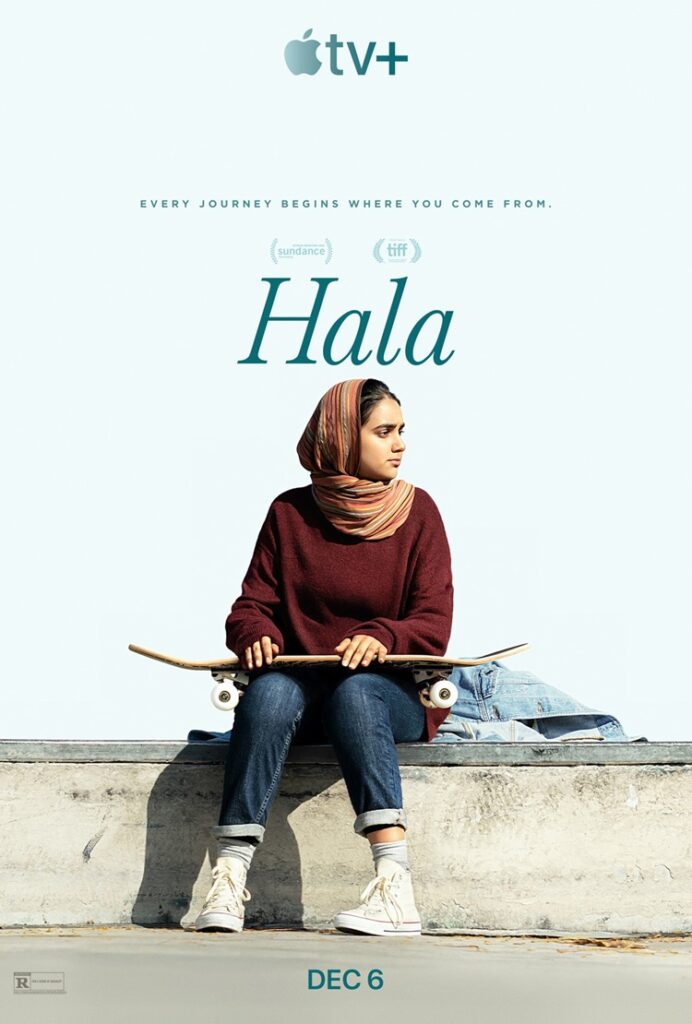
Part coming-of-age story and part meditative portrait of religious hypocrisy, Hala is quite an effective showcase. It also takes the typical story of a teenager adjusting to life in high school and makes it feel new by focusing on a Muslim American teen and emphasizing on the importance of choice. The film is about the titular character’s fight for her individuality from within and with those around her.
Buy The Broken Hearts Gallery starring Geraldine ViswanathanWhen the film first opens, we see Hala (Geraldine Viswanathan) reciting a prayer before the scene eventually cuts to her masturbating in a bathtub. Then, we see her skateboard to school while listening to hip hop. What the opening sequence does is demonstrate how Hala tries to reconcile both her religion and her need to explore things that other teenagers explore like sex. But because of her religiously conservative parents, it becomes difficult for her to practice her individuality.
Hala goes on quite the emotional journey. But her heavy arc is perfectly demonstrated by leading actress Geraldine Viswanathan. After stealing the scenery in last year’s Blockers as an outgoing teenager looking to have a fun prom, Geraldine Viswanathan already does a complete 180 as someone who is more guarded and demure. She excels as a girl simply trying to get through her senior year of high school amidst the drama she’s faced with and hopefully will have more momentum as a leading lady going forward.
However, as great as Viswanathan is as the title character, the actors that play Hala’s parents are major standouts. The beauty of their performances is how it seems like we have their personalities pinned down until our notions of them become shattered. For instance, Hala’s father Zahid (Azad Khan) appears laidback while still sticking to his religious conservatism. That is until a big secret becomes revealed and it turns out he doesn’t entirely practice what he preaches. As for Hala’s mother Eram (Purbi Joshi), she initially comes off as an overbearing, uptight Muslim mother. However, her strict demeanor turns out to be a mask for her vulnerability and her struggle to find her own place in the world.
Of course, credit for portraying the parents as complex and contradictory should also go to writer/director Minhal Baig who manages to shatter Muslim stereotypes in cinema in the process. Also, while the storyline is rather culturally specific, Baig presents enough restraint to make the story seem almost universal. Teenagers around Hala’s age tend to feel the same kind of pressure as her when taking the next life step that is going to college. Meanwhile, they also want to explore more adult situations like dating and sex because they’re tired of feeling like teenagers.
Even if Hala doesn’t reinvent the coming-of-age story entirely, thanks to the efforts of Minhal Baig, it still makes it feel new by demonstrating a more diverse storyline. It also thrives on its central leading performance by Geraldine Viswanathan who proves she’s a talent to watch. All in all, Hala is wonderfully humanistic and is also one not to be missed.